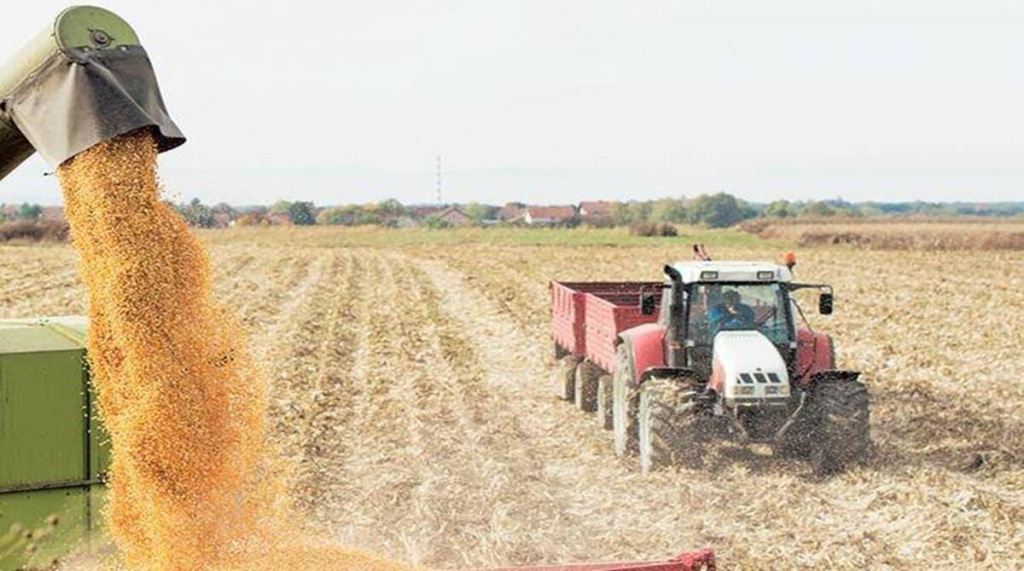In today’s rapidly-changing financial landscape, investors are continuously seeking new avenues to grow their wealth. One such opportunity that has gained considerable attention is investing in agricultural land.
Experts argue that agricultural investments provide a safe and lucrative option, offering higher returns compared to other investments while ensuring the security of one’s capital. Additionally, the growing importance of natural and organic food further highlights the significance of agricultural land for both human health and financial stability.
The Allure of Owning Agricultural Land
The allure of owning a piece of agricultural land extends beyond financial considerations. Many individuals dream of owning farmland to indulge their passion for farming or use it as a peaceful weekend getaway. However, smart investors recognize that agricultural land can serve as a viable income-generating asset by leasing it to farmers for cultivation.
Farm Tourism
The shifting focus of regional economies towards recreation and tourism has paved the way for farm-based tourist accommodations. Rural tourism, including farm tourism and homestead farming, has emerged as an essential component of rural development programs. The ongoing pandemic has further encouraged farmers to explore innovative ideas, attracting a new generation of visitors to experience the farming lifestyle. This trend not only benefits farmers but also presents a lucrative opportunity for investors in the agricultural sector.
Also Read: 10 reasons why buying a house is better than renting
Capital Appreciation
Investing in agricultural land can yield substantial financial gains. As the demand for farmland increases due to urban sprawl and land development, the limited availability of arable land drives up its value. Investors can expect capital appreciation, allowing them to sell the land for a profit. Diverse agricultural practices, such as cultivating crops like coconut, areca nut, jackfruit, and pineapple, further enhance the investment potential. Additionally, value-added products derived from farm produce, such as ginger chutney, virgin coconut oil, and pineapple jam, offer additional avenues for income generation.
Tax Benefits
Investors in agricultural land enjoy several tax benefits. Income earned from agricultural activities and profits derived from the sale of farmland are typically exempt from taxation. These tax advantages, combined with the potential for long-term financial gains, make agricultural land investments even more attractive.
Growing Wealth and Diversification
Traditionally, gold has been considered the primary investment option to combat inflation for the middle-class Indian population. However, the evolving Indian economy has prompted investors to explore alternative long-term investment opportunities. With the limited supply of agricultural land, owning such property positions investors favorably for wealth growth and provides a high level of capital security backed by physical assets.
Low Price of Land
One significant advantage of investing in agricultural land is its comparatively lower price when compared to residential or commercial properties. Agricultural land is typically priced lower due to its specific use and zoning restrictions. This affordability makes it an attractive investment option, especially for individuals with limited capital looking to enter the real estate market. The lower price also presents an opportunity for potential investors to acquire larger plots of land, thereby increasing the potential for future profits and diversification.
High Return on Investment
Investing in agricultural land can provide high returns on investment, particularly in the long term. As population growth and urbanization continue, the demand for agricultural products increases, driving up the value of farmland. Additionally, advancements in farming techniques and technologies contribute to higher agricultural productivity, further enhancing the income potential for investors. Furthermore, the diversification aspect of agricultural land investments reduces the overall investment risk, as it is less influenced by market fluctuations compared to other investment options.
The high return on investment is also evident when leasing the land to farmers. Farmers require land for cultivation, and leasing arrangements can generate a regular income stream for landowners. As the demand for organic and locally sourced produce grows, leasing agricultural land to farmers engaged in sustainable farming practices becomes even more lucrative. This provides investors with a stable and predictable source of income, enhancing the overall return on their investment.
It’s important to note that the actual return on investment can vary depending on various factors such as location, crop selection, management practices, and market conditions. Conducting thorough research and seeking advice from agricultural experts can help investors make informed decisions and maximize their returns.
Conclusion
Investing in agriculture may not yield immediate returns, but it holds great potential for long-term profitability. Agricultural investments offer stability, the possibility of regular income, and the satisfaction of supporting the crucial sector of farming. By carefully conducting due diligence and planning for the future, investors can reap the benefits of agricultural land investments.
(By Pradeep Mishra, Founder, Homents Pvt Ltd. Views are personal)

